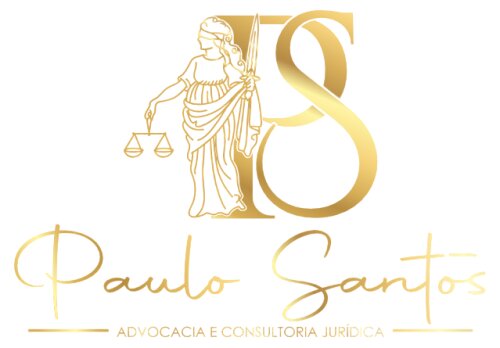Best Corporate Governance Lawyers in Brazil
Share your needs with us, get contacted by law firms.
Free. Takes 2 min.
Or refine your search by selecting a city:
List of the best lawyers in Brazil
About Corporate Governance Law in Brazil
Corporate Governance in Brazil refers to the system of rules, practices, and processes by which companies are directed and controlled. The goal is to balance the interests of many stakeholders, including shareholders, management, customers, suppliers, financiers, government, and the community. Corporate Governance laws and best practices help ensure that companies operate transparently, ethically, and efficiently, reinforcing market confidence and protecting long-term business interests. In Brazil, Corporate Governance is shaped by legislation, regulations issued by market regulators, and codes of best practices promoted by organizations such as the Brazilian Institute of Corporate Governance (IBGC).
Why You May Need a Lawyer
There are many situations in which seeking legal help for Corporate Governance in Brazil is essential. Common scenarios include:
- Structuring a company and defining governance policies to ensure compliance with Brazilian laws
- Advising on board of directors' duties and responsibilities
- Drafting and updating corporate bylaws and shareholder agreements
- Implementing risk management and internal control systems
- Navigating regulatory compliance with agencies like the Brazilian Securities and Exchange Commission (CVM)
- Resolving conflicts among shareholders or between management and shareholders
- Ensuring proper disclosure and transparency in public companies
- Assisting in mergers, acquisitions, or corporate restructuring
- Managing investigations or penalties related to Corporate Governance failures
- Preparing for or responding to audits of governance structures
A lawyer with expertise in Corporate Governance can guide companies through regulatory complexities, help prevent disputes, and safeguard the company's reputation and value.
Local Laws Overview
Corporate Governance in Brazil is primarily governed by federal law, supplemented by regulations and guidelines issued by regulatory agencies. Key legal aspects include:
- Brazilian Corporate Law (Law No. 6.404/1976 or the Brazilian Corporation Law): Sets out the legal framework for corporations, defining the structures of management, shareholders' rights, board duties, and shareholder meetings.
- Securities Market Regulation: The Brazilian Securities and Exchange Commission (CVM) issues rules affecting publicly traded companies, especially regarding disclosure, transparency, reporting, and market conduct.
- Code of Best Practices: The IBGC publishes guidelines promoting standards for board composition, audit committees, internal controls, and transparency.
- Anti-Corruption Laws: Laws like the Brazilian Clean Company Act (Law No. 12.846/2013) hold companies, including their executives and boards, liable for corrupt practices.
- General Data Protection Law (LGPD): Includes requirements for the protection of personal data, which are increasingly relevant for governance and compliance programs within organizations.
Understanding these frameworks ensures companies meet regulatory obligations and adopt ethical management and decision-making processes.
Frequently Asked Questions
What is the main purpose of Corporate Governance in Brazil?
The main purpose is to establish a clear structure of accountability and transparency in companies, promote ethical decision-making, protect stakeholders’ interests, and foster sustainable growth.
Which laws apply to Corporate Governance in Brazil?
The principal law is the Brazilian Corporation Law, complemented by regulations from the CVM, IBGC codes, and laws covering anti-corruption, data protection, and securities markets.
Who regulates Corporate Governance practices in Brazil?
The primary regulator is the Brazilian Securities and Exchange Commission (CVM) for publicly traded companies, while the IBGC provides guidelines for best practices. Other agencies may be involved depending on sector and company type.
Are Corporate Governance requirements mandatory or voluntary?
Certain Corporate Governance requirements, especially for listed companies, are mandatory by law or regulation. Best practices, such as those recommended by the IBGC, are typically adopted voluntarily but are encouraged.
What are the responsibilities of a board of directors in a Brazilian company?
They are responsible for supervising management, setting strategic direction, overseeing internal controls and risk management, ensuring legal compliance, and representing the interests of shareholders.
How are conflicts between shareholders resolved?
Conflict resolution mechanisms are usually established in the company's bylaws or shareholder agreements. Legal action or arbitration may also be used, depending on the nature of the dispute.
What are the disclosure requirements for public companies?
Public companies must regularly publish material facts, financial statements, and other reports to ensure transparency and maintain investor confidence, as regulated by the CVM.
How can a company improve its Corporate Governance?
By adopting clear governance policies, having independent directors, creating audit and ethics committees, maintaining effective controls, and adhering to standards recommended by organizations like IBGC.
What penalties exist for failing to comply with Corporate Governance laws?
Penalties can range from administrative sanctions and monetary fines to civil and criminal liability for company executives and directors, depending on the nature and gravity of the violation.
Is it necessary to have a lawyer to implement Corporate Governance?
While not strictly mandatory, legal guidance is highly recommended to ensure compliance with complex and evolving regulations and to protect the interests of the company and its stakeholders.
Additional Resources
If you are seeking more information or assistance, the following resources are valuable for Corporate Governance matters in Brazil:
- Brazilian Securities and Exchange Commission (CVM): The regulator for capital markets and public company governance.
- Brazilian Institute of Corporate Governance (IBGC): Provides best practice guidelines, training, and events on Corporate Governance.
- Trade Associations: Many sectoral trade associations offer Corporate Governance support and advice tailored to industry needs.
- Business Chambers and Federations: Such as the Federation of Industries of the State of São Paulo (FIESP), which offer guidance and seminars.
- Law Firms: Specialized law firms with Corporate Governance practices can offer personalized legal advice.
Next Steps
If you need legal assistance with Corporate Governance in Brazil, consider the following steps:
- Identify your specific issue or question related to Corporate Governance
- Gather any relevant company documents or information about your situation
- Seek specialized legal counsel with experience in Corporate Governance and Brazilian business law
- Prepare a list of questions or concerns to discuss with your lawyer
- Follow legal advice to implement governance structures or resolve any disputes efficiently
Taking proactive steps to understand and comply with Corporate Governance requirements in Brazil will help protect your business, foster trust, and support sustainable growth.
Lawzana helps you find the best lawyers and law firms in Brazil through a curated and pre-screened list of qualified legal professionals. Our platform offers rankings and detailed profiles of attorneys and law firms, allowing you to compare based on practice areas, including Corporate Governance, experience, and client feedback.
Each profile includes a description of the firm's areas of practice, client reviews, team members and partners, year of establishment, spoken languages, office locations, contact information, social media presence, and any published articles or resources. Most firms on our platform speak English and are experienced in both local and international legal matters.
Get a quote from top-rated law firms in Brazil — quickly, securely, and without unnecessary hassle.
Disclaimer:
The information provided on this page is for general informational purposes only and does not constitute legal advice. While we strive to ensure the accuracy and relevance of the content, legal information may change over time, and interpretations of the law can vary. You should always consult with a qualified legal professional for advice specific to your situation.
We disclaim all liability for actions taken or not taken based on the content of this page. If you believe any information is incorrect or outdated, please contact us, and we will review and update it where appropriate.
Browse corporate governance law firms by city in Brazil
Refine your search by selecting a city.
















